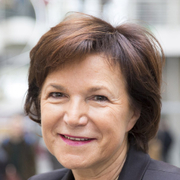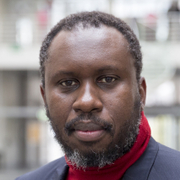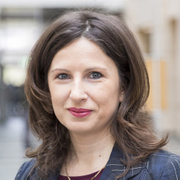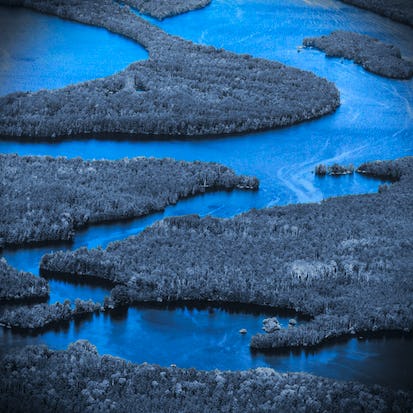- Level Professional
- Duration 10 hours
- Course by University of Geneva
-
Offered by

About
In recent decades, international law has undergone a series of major developments in order to accommodate the many new facets of freshwater management and protection. The adoption of universal, regional and basin instruments highlights how important it is to study the evolution of international water regulations and to be able to identify the main principles in this field. This course aims to provide the necessary background to understand and examine the regulation applicable to transboundary freshwaters especially to rivers, lakes and aquifers. It presents the principles and legal standards that govern the use, sharing, management and protection of these resources. The MOOC is made up of 5 modules. As each module addresses a different theme, they can be viewed in any order. However, the modules do follow a certain pedagogical logic and following in order will be especially helpful to those who are new to the subject. Each module is accompanied by an evaluation questionnaire or quiz. A certificate will be awarded to students who obtain an average of at least 80% in the quizzes. By the end of this course, you will be able to: 1) Describe the issues related to the regulation of transboundary freshwaters; 2) Explain how transboundary freshwater regulations have evolved; 3) Recall and interpret the key principles governing water resource regulation; 4) Understand the role of transboundary freshwater dispute settlement mechanisms in the development of international freshwater law (or to understand the role of international courts and tribunals in the resolution of conflicts) This MOOC was developed by the Platform for International Freshwater Law that is part of the Geneva Water Hub, assisted by the MOOC Team of the University of Geneva. Alongside the researchers and teachers of the Platform, several international experts have also participated. This MOOC is one of three courses supported by the Water Hub Geneva and the University of Geneva. The other MOOCS are "Water Management and Policy" (www.coursera.org/learn/gestioneau) and "Ecosystem Services: a method for sustainable development "(www.coursera.org/learn/ecosystem-services). The Global Water Program of the Swiss Agency for Development and Cooperation (SDC) has funded this course. This MOOC was originally created in French. It has English subtitles.Modules
1.0 General Introduction
2
Videos
- 1.0 General Introduction - Professor Laurence Boisson de Chazournes, Faculty of Law, University of Geneva
- Copy of 1.0 General Introduction - Professor Laurence Boisson de Chazournes, Faculty of Law, University of Geneva
1.1 Introduction of module 1
1
Videos
- 1.1 Introduction - Dr Komlan Sangbana and Dr Mara Tignino, Platform for International Water Law/Geneva Water Hub, University of Geneva
2
Readings
- Glossary
- Fundamental Legal Instruments
1.2 Challenges and Benefits of the Cooperation on Transboundary Water Resources
1
Assignment
- Formative Assessment of the Lecture 1.2
3
Videos
- 1.2.1 Challenges in the Management and Protection of Transboundary Water Resources - Professor Laurence Boisson de Chazournes, Faculty of Law, University of Geneva
- 1.2.2. Transboundary Water Resources as a Possible Cause of Conflict - Dr Mara Tignino, Platform for International Water Law/Geneva Water Hub, University of Geneva
- 1.2.3. The Benefits of Cooperation on Transboundary Water Resources - Dr Komlan Sangbana, Platform for International Water Law/Geneva Water Hub, University of Geneva
1.3. Transboundary Water Resources and their Utilizations
1
Discussions
- The Contribution of International Water Law to the Peaceful Management of Transboundary Water Resources
3
Videos
- 1.3.1. The Multiple Utilizations of Transboundary Water Resources - Professor Laurence Boisson de Chazournes, Faculty of Law, University of Geneva
- 1.3.2. The Characteristics of the Conflicts between Utilizations - Professor Makane Moïse Mbengue, Faculty of Law, Institute for Environmental Sciences, University of Geneva
- 1.3.3. Case Study : Conflict between Uses in the Uruguay River (Argentina/Uruguay) - Dr Mara Tignino, Platform for International Water Law/Geneva Water Hub, University of Geneva
1.4 Conclusion and quiz of module 1
1
Assignment
- Quiz of module 1
1
Videos
- 1.4. Conclusion - Dr Komlan Sangbana and Dr Mara Tignino, Platform for International Water Law/Geneva Water Hub, University of Geneva
2.1 Introduction of Module 2
1
Videos
- 2.1 Introduction - Dr Komlan Sangbana, Platform for International Water Law/Geneva Water Hub, University of Geneva
2.2. The Codification of the Law Applicable on International Watercourses
1
Discussions
- The Entry into Force of the Convention of 1997 and the Global Opening of the Convention of 1992
4
Videos
- 2.2.1. The Origin of Codification of the Law Applicable to International Watercourses - Interview with Professor Lucius Caflisch, Honorary Professor at the Graduate Institute of International and Development Studies and Former Member of the UN Intern
- 2.2.2. The Significance of the Entry into Force of the Convention on the Law of the Non-Navigational Uses of International Watercourses of 1997 - Professor Makane Moïse Mbengue, Faculty of Law, Institute for Environmental Sciences, University of Gen
- 2.2.3. The Contribution of the Convention on the Protection and Use of Transboundary Watercourses and International Lakes of 1992 to the Regulation of Transboundary Water Resources - Interview with Ms Francesca Bernardini, Secretary of the Convention
- 2.2.4. The Role of Civil Society in the Ratification Process of the United Nations Convention of 1997 - Interview with Ms Marie-Laure Vercambre, Director, Water for Life and Peace Programme, Green Cross International
2.3. The Case of Groundwater Resources
1
Assignment
- Quiz of the Lesson 2.3
4
Videos
- 2.3.1. The Challenges Linked to the Regulation of Groundwater Resources - Ms Raya Stephan, Expert in Water Law, International Consultant
- 2.3.2. The Work of the International Law Commission on the Law of Transboundary Aquifers - Ms Raya Stephan, Expert in Water Law, International Consultant
- 2.3.3. The Specificities of the Law on Transboundary Aquifers - Ms Raya Stephan, Expert in Water Law, International Consultant
- 2.3.4. Case Study : The Genevese Transboundary Aquifer (Switzerland-France) - Interview with Dr Gabriel de Los Cobos - Expert, Hydrogeologist, Department of Geology, Soil and Waste (GESDEC), Canton of Geneva
2.4 Conclusion and Quiz of Module 2
1
Assignment
- Quiz of Module 2
1
Videos
- 2.4. Conclusion - Dr Komlan Sangbana, Platform for International Water Law/Geneva Water Hub, University of Geneva
3.1. Introduction to Module 3
1
Videos
- 3.1. Introduction - Dr Mara Tignino, Platform for International Water Law/Geneva Water Hub, University of Geneva
3.2. The Principles Regulating the Sharing of Transboundary Water Resources
1
Discussions
- The Relationship Between the Three Fundamental Principles Regulating the Sharing of Transboundary Water Resources
5
Videos
- 3.2.1a. The Key Principles of Water Sharing: the Principle of Equitable and Reasonable Utilization and the Obligation Not to Cause Significant Harm - Dr Mara Tignino, Platform for International Water Law/Geneva Water Hub, University of Geneva
- 3.2.1. The Relationship Between the Principle of Equitable and Reasonable Utilization and the Obligation Not to Cause Significant Harm - Interview with Professor Lucius Caflisch, Honorary Professor at the Graduate Institute of International and Devel
- 3.2.2. Cooperation Between Riparian States and the Notion of the Community of Interests and Rights - Professor Laurence Boisson de Chazournes, Faculty of Law, University of Geneva
- 3.2.3. The Forms of Cooperation - Dr Mara Tignino, Platform for International Water Law/Geneva Water Hub, University of Geneva
- 3.2.4. Case Study: The Experience of the Senegal River Basin Development Organization (OMVS) on the Sharing of Transboundary Water Resources - Professor Makane Moïse Mbengue, Faculty of Law, Institute for Environmental Sciences, University of Geneva
3.3 The Principles Regulating Planned Measures on Transboundary Water Resources
2
Videos
- 3.3.1. Aims and Modalities of the Obligation on Notification on Planned Measures - Professor Laurence Boisson de Chazournes, Faculty of Law, University of Geneva
- 3.3.2. Triggering and Conduct of the Procedures on Consultations and Negotiations in the Case of Planned Measures - Dr Komlan Sangbana, Platform for International Water Law/Geneva Water Hub, University of Geneva
3.4. Conclusion and quiz of module 3
1
Assignment
- Quiz of module 3
1
Videos
- 3.4. Conclusion - Dr Komlan Sangbana, Platform for International Water Law/Geneva Water Hub, University of Geneva
4.1. Introduction of module 4
1
Videos
- 4.1. Introduction of Module 4 - Dr Mara Tignino, Platform for International Water Law/Geneva Water Hub, University of Geneva
4.2. Water and the protection of the environment
4
Videos
- 4.2.1. The Contribution of the Multilateral Environmental Agreements (MEAs) to the Protection and Management of Water Resources - Professor Laurence Boisson de Chazournes, Faculty of Law, University of Geneva
- 4.2.2. The Fight against the Pollution of Water Resources - Dr Komlan Sangbana, Platform for International Water Law/Geneva Water Hub, University of Geneva
- 4.2.3. Water and Climate Change - Dr Mara Tignino, Platform for International Water Law/Geneva Water Hub, University of Geneva
- 4.2.4. The Water Charters in Africa: An Innovative Instrument for the Protection of the Aquatic Environment - Professor Makane Moïse Mbengue, Faculty of Law, Institute for Environmental Sciences, University of Geneva
4.3. Water and the Rights of Individuals and Communities
1
Discussions
- The Contemporary Elements of International Water Law
2
Videos
- Lecture 4.3.1 The Right to Water and Public Participation - Dr Mara Tignino, Platform for International Water Law/Geneva Water Hub, University of Geneva
- 4.3.2. Case Study: Public Participation in the Context of the International Joint Commission (Canada/United States) - Dr Komlan Sangbana, Platform for International Water Law/Geneva Water Hub, University of Geneva
4.4 Conclusion and quiz of module 4
1
Assignment
- Quiz of Module 4
1
Videos
- 4.4. Conclusion - Dr Mara Tignino, Platform for International Water Law/Geneva Water Hub, University of Geneva
5.1. Introduction of Module 5
1
Videos
- 5.1. Introduction of Module 5 - Dr Mara Tignino and Dr Komlan Sangbana, Platform for International Water Law/Geneva Water Hub, University of Geneva
5.2 Means to Settlement Water-Related Disputes
2
Videos
- 5.2.1. The Variety of Diplomatic Means to Settle Water Disputes - Professor Laurence Boisson de Chazournes, Faculty of Law, University of Geneva
- 5.2.2. The Judicial Means to Settle Water Disputes - Professor Laurence Boisson de Chazournes, Faculty of Law, University of Geneva
5.3 The Settlement of Disputes in Practice
1
Discussions
- The Role of Joint Mechanisms in the Prevention and Settlement of Water Disputes
3
Videos
- 5.3.1. The Settlement of Disputes in the Context of the United Nations Convention on the Law of the Non-Navigational Uses of International Watercourses of 1997 - Interview with Professor Lucius Caflisch, Honorary Professor at the Graduate Institute o
- 5.3.2. The Contribution of Joint Mechanisms to the Settlement of Water Disputes - Professor Laurence Boisson de Chazournes, Faculty of Law, University of Geneva
- 5.3.3. The Settlement of Water Disputes: Practical Aspects - Professor Makane Moïse Mbengue, Faculty of Law, Institute for Environmental Sciences, University of Geneva
5.4 Conclusion and quiz of module 5
1
Assignment
- Quiz of module 5
1
Videos
- 5.4. Conclusion - Dr Mara Tignino and Dr Komlan Sangbana, Platform for International Water Law/Geneva Water Hub, University of Geneva
Auto Summary
Explore the evolving field of international water regulations with the "International Water Law" course. Focused on the regulation, management, and protection of transboundary freshwater resources such as rivers, lakes, and aquifers, this professional-level MOOC offers 5 comprehensive modules, each accompanied by quizzes. Developed by the Geneva Water Hub and the University of Geneva, it features insights from international experts. Ideal for those in Personal Development, it promises a certificate upon achieving an 80% quiz average. Available on Coursera, with both Starter and Professional subscription options, and is accessible with English subtitles.

Laurence Boisson de Chazournes

Makane Moïse Mbengue

Mara Tignino

Komlan Sangbana


